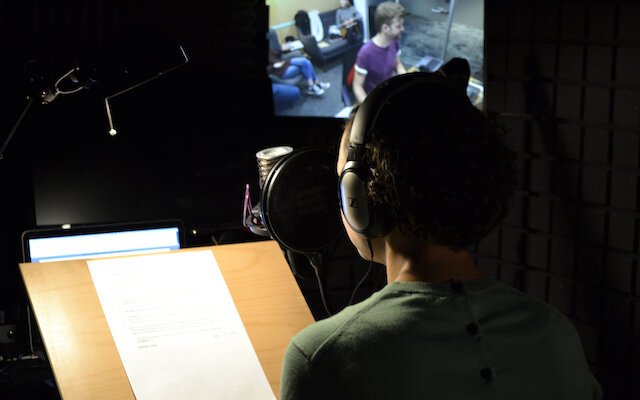8 steps to creating award-winning podcasts
As the Speak team celebrates winning best audio campaign of the year at the Global Content Awards for the Parkinson’s Life podcast, we share eight steps to creating a standout podcast.
1. Define your aims from the start
Be clear about what you are trying to achieve. Our aim with Parkinson’s Life was to create useful and engaging content that supported existing content channels, while also reaching a new audience via audio on previously unexplored channels. Tone was crucial: we wanted our podcast to be filled with life-affirming “beautiful stories of hope” that both acknowledged the reality of the condition and shared ideas for living with it in the best way possible.
2. Do your research
Don’t walk into podcast development without first carefully looking into what is already out there that fulfils the needs of your audience. Review a broad range of competitor podcasts and home in on any gaps. Once you have a proposition in mind, create a clear brand identity to stand out in a crowded marketplace, including unique visual artwork, as well as choosing the right music to set the mood for each episode (see point seven).
3. Centre personal stories
People want to hear about people. So even if you want to disseminate factual information, find a way to do so through personal stories. We made sure that while health professionals were invited to contribute, these guests would always be speaking in collaboration with people who are directly affected by the condition. This allowed us to avoid becoming a webinar-style ‘information dispenser’, and instead became a place to explore what it really means to live with this incurable neurological condition.
4. Keep it conversational
It was important to us to centre on the experiences of real people. So rather than using a more traditional interviewee/interviewer format, we adopted an ‘in conversation’ approach, where two or more people with direct experience of Parkinson’s were given the space to explore openly and honestly what the condition has meant to them, unmoderated by a presenter. Subjects ranged from exploring the challenges of parenting and managing working life while living with the condition, to what it’s like to care for someone with Parkinson’s.
5. Take a multichannel approach
Consider how you can share your podcast across multiple audio channels such as Soundcloud, iTunes and YouTube to maximise your reach, while also finding ways to integrate it into your written channels. A dedicated section on your website or regular promotion in your e-shot are good places to start. Think about ways you can take bite-size audio or video clips and use them across your social channels.
6. Create episodic themes
A great way of creating a sense of purpose within individual episodes is to make sure each has a specific theme. We had six episodes covering topics including: how Parkinson’s can affect creativity; the challenges of parenting with Parkinson’s; the difficulties surrounding managing working life while living with the condition; and how women experience the condition differently to men (as part of our #WomenandParkinson’s campaign).
7. Use music effectively
You already know how music can lift a film or TV programme, and podcasts are no different. Think carefully about the mood you want to create. What emotions do you want your audience to feel? How can you use music to signpost different parts of your show? Explore the myriad music libraries out there for intro and outro options; short ‘stings’, which can mark transitions between segments; and the music ‘bed’, which might come in quietly as the presenter starts to conclude the episode.
8. Enjoy it
There’s no hiding with audio. How much your team love communicating in this way will come through to listeners loud and clear. Wherever and however you record, make sure presenters and guests are well prepped and comfortable. For the Parkinson’s Life podcast, each of our recording sessions involved guests in up to three locations around the world, which definitely added to the complexity of the set-up! But careful prep ahead of time ironed out any glitches and ensured guests felt secure talking openly with each other. The result? Beautiful conversations.
Want to find out how Speak can help with planning, producing and distributing standout audio content?
Contact Gabrielle Bridle from our client services team: gabriellebridle@speakmedia.co.uk.


